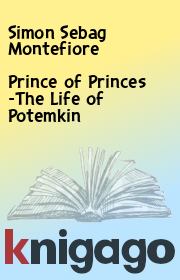Rosamund Bartlett - Chekhov : scenes from a life
Название: | Chekhov : scenes from a life | |
Автор: | Rosamund Bartlett | |
Жанр: | Старинная литература | |
Изадано в серии: | неизвестно | |
Издательство: | неизвестно | |
Год издания: | - | |
ISBN: | неизвестно | |
Отзывы: | Комментировать | |
Рейтинг: | ||
Поделись книгой с друзьями! Помощь сайту: донат на оплату сервера | ||
Краткое содержание книги "Chekhov : scenes from a life"
Аннотация к этой книге отсутствует.
Читаем онлайн "Chekhov : scenes from a life". [Страница - 2]
- 1
- 2
- 3
- 4
- . . .
- последняя (120) »
Marx in 1899 294 Alexander Vishnevsky as Uncle Vanya in the first Moscow Art
Theatre production, 1899 298
The closing scene of Uncle Vanya in 1899 300 The Church of the Exaltation of the Cross, Moscow, where
Chekhov married Olga Knipper, May 1901 301 The new Moscow Art Theatre build'ng, designed by Fyodor
Shekhtel, 1902 304
Olga Knipper as Ranevskaya in The Cherry Orchard, 1904 306
Chekhov with his dogs Schnap and Sharik, 1904 310
Olga as Masha in Three Sisters, 1901 314
Stanislavsky as VershHin in Three Sisters, 1901 315
Yalta, seen from the east 323
Chekhov's house in Autka, 1901 325 m 500-rouble banknote issued in 1997, showing Antokolsky's
statue of Peter the Great in Arkhangelsk 345
NOTE ON ABBREVIATIONS, TRANSLITERATION AND DATES
All quotations from Chekhov's writings refer to the thirty-volume Academy of Sciences edii on of Ыг> complete collected works, published in Moscow between 1974 and 1983: the works are published in eighteen volumes and the letters in twelve volumes. Notes to the works are preceded by 'W' and contain volume numbers followed by page references; in the case of references to letters, volume numbers are preceded by 'L'.
A si tnplified transliteration system has been followed in the body of the text, with a more accurate system employed in the notes.
The dates cited refer to the Julian calendar used in Russia before 1917, which was twelve days behind the Western calendar in the nineteenth century and thirteen in the twentieth century.
PREFACE
In a recent volume of articles about Chekhov, a prominent Russian scholar asked the question: 'Is it easy to be Chekhov's biographer?'1 Despite hundreds of memoirs, twelve volumes of annotated letters, articles, monographs, and copious other sources, published and unpublished, not to mention a myriad clues contained in the works chemselves, she had to conclude that it was not. Chekhov's letters, after all, are not always as straightforward as they appear, and memoirs can often be unreliable and even flatly contradictory: there is still a lack of agreement even on such ruaimentary points, for example, as the colour of Chekhov's eyes (variously described as grey, blue, or brown). A major achievement in the late twentieth century was to remove the layers of distortion that had accreted over the decades of Soviet rule and make Chekhov human agai 1. The Stalinist image of Chekhov as a personality without flaws proved remarkably resilient, but has now at last given way to a more balanced view. For this, we are indebted to the pioneering biographies based on detailed study of the available Russian sources by British and American Slavists such as Ronald Hingley and Ernest J. Simmons, and, in ©articular, to the recent exhaustive account by Donald Rayfield. Because of the lingering reverence with which wrii.ers are still held in Russia, a full- scale b;ograohy of Chekhov in Russian has yet to be written, but thanks to Donald Rayheld's meticulous research in newly opened archives, we now have a definitive account of Chekhov's day-to-day life, set 'n the context of his :mmediate environment. The fact that Chekhov was as inconsistent and as contradictory as the nex*- person, however, suggests that we will thankfully never have a definitive interpretation of his life. The conventional image of Chekhov as someone self-contained and reserved in manner certainly tallies with the form and structure of his artistic works, yet he himself admitted at one point to having a fiery temper and a nervous disposition. Such anomalies encourage us to continue the process of interpreting Chekhov's life, rather than acting as a deterrent.
Of the many cliches which have clung persistently to Chekhov's biography (frail, bespectacled, gloomy Russian writer etc.), the most tenacious perhaps is that of his elusive character. Here is an aspect where most memoirs seem to concur: we read that Chekhov kept his distance, that he was solitary, silent, reticent, sober, and possessed of a certain coldness.2 Even when he married, he preserved his autonomy, choosing not to live permanently with his wife. But there was one area of his life where he was unusually expansive, and that was in his relationship with the landscape. Chekhov's main subject as an artist may have been people's frailties and the complexities of human interaction, but human beings rarely inspired him to flights of iyric sm in the way that the Russian landscape dd. Chekhov h:i his lyrical persona carefully, but it is there to find i i his letters, and particularly in his short stories. It was the landscape which occas onally provoked him to utter the word 'poetic', the highest accolade in his vocabulary, and it was the landscape which was respon. ible for some of the happiest moments in his life. It also pervaded the unconscious world of his dreams and nightmares, as he intriguingly revealed in a letter he wrote to the writer Dmitry Grigoro1 ich in February 1887, when he was twenty-seven years old:
When my blanket falls off at night, I begin to see in my dreams huge slithery rocks, cold autumn water and bare riverbanks - all of this is foggy and unclear, without a single patch of blue sky; in despair and melancholy, as if I have lost my way or have been abandoned, I look at the rocks and feel that for some reason I must cross the deep river; I see little tug boats, pulling huge barges, pieces of timber, rafts and so on floating by. Everything ;s unbearably desolate, raw and stark. When I run away from the river I come to fallen-down cemetery gates, a funeral, my school teachers . . . And am I filled during this time with the sort of nightmarish cold which is unconceivable when I am awake ... I think if I had been born and lived permanently in St Petersburg, I would definitely dream about the banks of the Neva, Senate Square and massive pedestals.. .3
Chekhov was a writer who was profoundly sensitive to his environment. If it is difficult for as to penetrate Chekhov's character through his relationships with people because of 1 is inscrutability and reserve, perhaps our emphasis should be shifted to hi; relationship with the places in which he lived?
This biography therefore takes as its point of departure Chekhov's physical environment: the provincial town of Taganrog among the steppes in which he grew up, the burgeoning city of Moscow where he trained as a doctor and made his home as an adult, the more formal St Petersburg where most of his literary work was based, the rural summer retreats where he was аЫе со егюу being idle (which he regarded as an essential .ngredient of happiness), the empty wastes of Siberia which enabled him to fulfil his lust for adventure and also put into practice the ideals that he cherished, the country estate of MeliKhovo where he planted trees and roses and enjoyed living on the land, the beautiful but alien French Riviera, where he spent lonely winter months trying to get well, and the С r: mean resort of Yalta where he had the excruciating experience of seeing his life slowly ebb away. The aim of each chapter is to convey the texture of Chekhov's life in each of the places in which he lived or spent sign: ficant amounts of time, and in so doing shed 'ight on different aspects of his character. This book is a biography of Chekhov, and more
--">- 1
- 2
- 3
- 4
- . . .
- последняя (120) »
Книги схожие с «Chekhov : scenes from a life» по жанру, серии, автору или названию:
 |
| Simon Sebag Montefiore - Prince of Princes -The Life of Potemkin Жанр: Старинная литература Год издания: 2011 |




